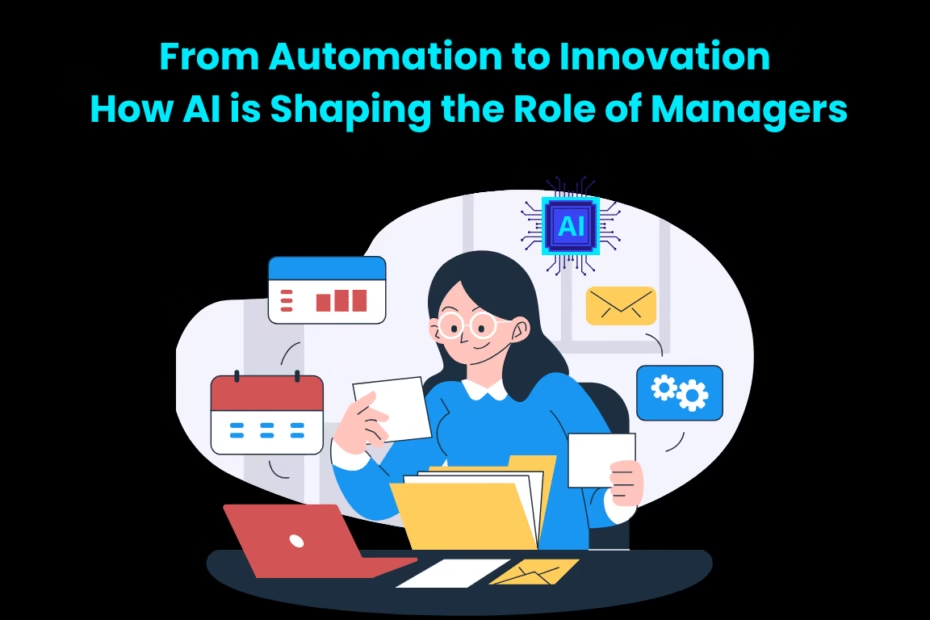Artificial Intelligence (AI) is no longer a futuristic concept—it’s already transforming how businesses operate and how leaders manage their teams. If you’re a manager today, you’re not just overseeing people or processes; you’re navigating a workplace where AI plays a central role. Your career path—and the success of your team—now depends on your ability to adapt, learn, and lead in an AI-integrated environment.
Institutions like IIM Calcutta, through programmes such as the Senior Management Programme, are actively reshaping their curriculum to reflect this shift. AI is not just a technological tool; it is redefining what it means to be an effective manager.
How AI Is Changing Everyday Management Tasks
Gone are the days when management was dominated by paperwork, repetitive tasks, and time-consuming approvals. AI is now streamlining and transforming these responsibilities:
1. Automation of Routine Tasks
AI enables seamless workflow automation—handling scheduling, reporting, and status tracking across departments. These intelligent systems save hours each week, allowing managers to focus on high-impact strategic decisions.
2. Smarter Resource Allocation
AI tools evaluate team skills, workloads, and historical performance data to optimise task assignments. Forecasting future resource needs becomes far more accurate, reducing both inefficiency and burnout.
3. Faster and Smarter Decision-Making
AI delivers real-time data analysis, giving managers access to immediate insights. This agility enables quicker responses to market shifts or internal issues—a skill that the IIM Calcutta Senior Management Program now highlights as essential.
4. Enhanced Customer Service
AI-powered chatbots and virtual assistants provide 24/7 customer support, resolving basic queries and escalating only the complex ones. This improves satisfaction and allows your team to focus on relationship building.
5. Smoother Onboarding and Admin
From auto-sorting emails to provisioning software access for new employees, AI reduces operational friction—accelerating employee productivity and organisational growth.
These changes don’t just improve efficiency—they redefine what it means to be a manager. Your role is no longer about micromanaging processes but about driving value through strategic leadership.
The Evolving Role of Managers in an AI-Driven Workplace
With AI taking over repetitive tasks, the role of the manager is undergoing a deep transformation:
1. Shift from Tactical to Strategic Leadership
Freed from administrative burdens, managers can now devote more time to planning, coaching, and innovating. Developing long-term visions and anticipating market changes becomes central to the role.
2. Leading Hybrid Teams
Today’s teams often include both human and AI “colleagues.” Managers must learn to collaborate and prioritize AI tools while nurturing their human teams’ creativity and engagement.
3. Focus on Human Skills
While AI excels at analysis and pattern recognition, humans still lead in emotional intelligence, ethical judgement, and innovation management. Courses like the IIM Senior Management Programme focus on cultivating these vital traits in future leaders.
4. New Organisational Roles
The rise of “AI Agent Orchestrators” shows how management structures are adapting. These roles involve overseeing AI systems, ensuring their output aligns with company goals, and maintaining documentation.
5. Creating Psychological Safety
An AI-driven workplace still needs trust and open communication. Managers must build a culture where employees feel safe to question AI decisions and contribute their insights.
Challenges and Ethical Responsibilities for Managers
While AI offers immense benefits, it also raises significant ethical concerns that managers must address:
1. Combating Algorithmic Bias
AI systems often reflect biases present in their training data. Managers must scrutinise AI outputs and ensure fair practices in hiring, evaluation, and decision-making.
2. Ensuring Transparency
Many AI models are “black boxes” that provide little insight into how they reach conclusions. Managers must push for explainable AI systems so teams can trust and understand decisions.
3. Protecting Data Privacy
AI thrives on data—but mishandling personal information can lead to serious legal and reputational issues. Managers must enforce strict data governance protocols.
4. Building Ethical Frameworks
The IIM Senior Management Programme stresses the importance of ethical thinking in AI implementation. Managers should develop clear policies and ensure decisions align with corporate and social values.
5. Fostering Responsibility and Oversight
Technology cannot replace judgement. Managers must remain accountable for decisions influenced by AI and ensure human oversight remains part of all critical processes.
Read More: Leveraging AI Humanizers to Build Trust in AI-Generated Content
Conclusion:
AI is no longer a tool you can afford to ignore. It has already transformed how managers work and lead. But far from replacing human leadership, AI enhances it—allowing you to focus on strategic thinking, people development, and innovation.
Programmes like the IIM Senior Management Program are preparing leaders to embrace this future. They equip managers with both technical understanding and the human-centric skills that automation can never replicate.
Your success in this new era depends on your ability to:
- Balance AI’s efficiency with human empathy and judgement
- Foster collaboration between people and machines
- Build ethical, transparent, and inclusive systems
- Create safe, creative spaces for your team to challenge and innovate
AI is reshaping the workplace. But the future belongs to leaders who see it not just as a tool—but as a partner in reimagining what effective management looks like.

